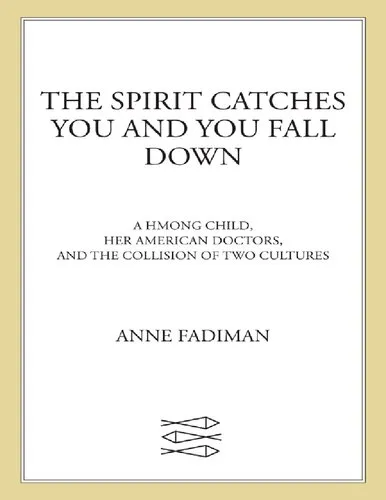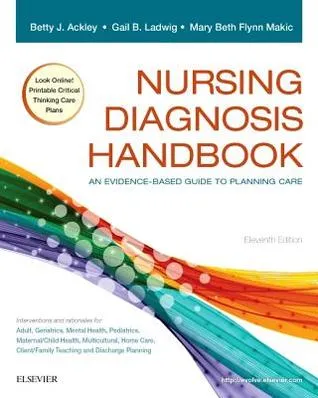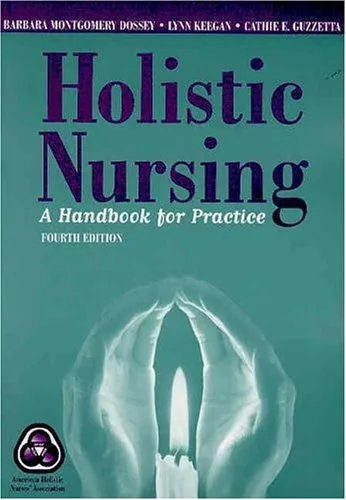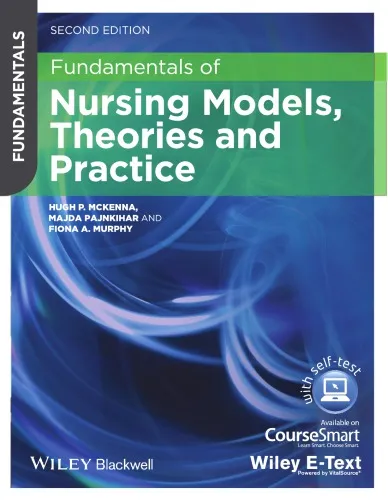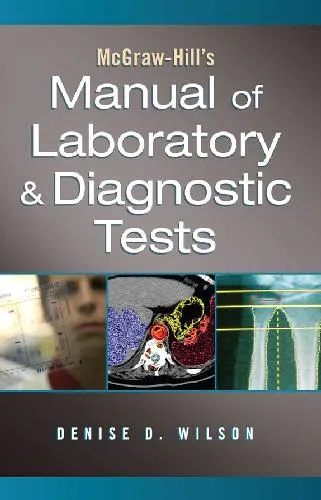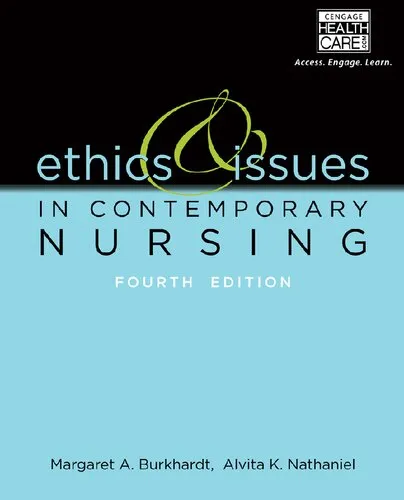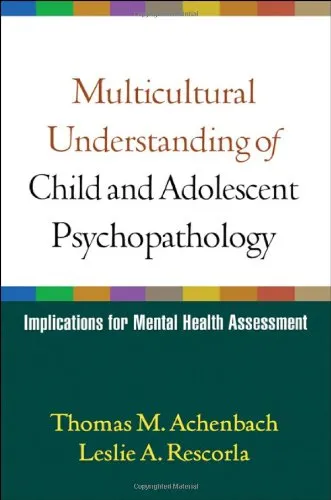The Spirit Catches You and You Fall Down
4.9
بر اساس نظر کاربران

شما میتونید سوالاتتون در باره کتاب رو از هوش مصنوعیش بعد از ورود بپرسید
هر دانلود یا پرسش از هوش مصنوعی 2 امتیاز لازم دارد، برای بدست آوردن امتیاز رایگان، به صفحه ی راهنمای امتیازات سر بزنید و یک سری کار ارزشمند انجام بدینکتاب های مرتبط:
معرفی کتاب "The Spirit Catches You and You Fall Down"
کتاب "The Spirit Catches You and You Fall Down" یکی از برجستهترین آثار آن فدیمان (Anne Fadiman) است که به شکلی عمیق و تأملبرانگیز به تقاطع فرهنگ، پزشکی، و انسانیت میپردازد. این کتاب که در سال ۱۹۹۷ منتشر شد، توجه خوانندگان و منتقدان زیادی را به خود جلب کرده است و همچنان یکی از مهمترین منابع در حوزه انسانشناسی و فرهنگپزشکی به شمار میرود.
خلاصهای از کتاب
این کتاب، روایت برخورد فرهنگی میان خانوادهای از قوم همونگ (Hmong) مهاجر به ایالات متحده و تیمی از پزشکان آمریکایی است که وظیفه درمان دختر خردسال خانواده به نام لیا لی (Lia Lee) را بر عهده دارند. لیا به بیماری صرع مبتلاست، وضعیتی که در فرهنگ همونگ به آن quag dab peg گفته میشود. این عبارت به معنای "روحی که شما را میگیرد و به زمین میاندازد" است و در باورهای سنتی همونگ به عنوان نشانهای مقدس و ارتباط با نیروهای روحانی در نظر گرفته میشود. اما در سیستم پزشکی غربی، این بیماری باید با روشهای علمی و داروهای مدرن کنترل شود.
داستان کتاب به چالشهایی میپردازد که از تلاش پزشکان برای درمان لیا و اختلافات فرهنگی میان دو طرف ناشی میشود. خانواده لیا درمانهای دارویی را با باورهای فرهنگی خود مغایر میدانند، در حالی که پزشکان درمان سنتی همونگ را ناکارآمد میپندارند. این تناقض فرهنگی منجر به تضاد عمیقی در ارتباط و تصمیمگیریهای مرتبط با درمان لیا میشود.
نکات کلیدی کتاب
- اهمیت درک متقابل و همدلی در برخورد میان فرهنگهای متفاوت.
- نقد سیستم پزشکی غربی و چالشهای آن در برابر فرهنگهای سنتی.
- بررسی عواقب شکست در ارتباطات فرهنگی و کاهش کیفیت خدمات مراقبتی.
- نقش زبان، مذهب و باورهای سنتی در تعیین مسیر درمان یک بیمار.
- ارزش انسانیت و احترام به تفاوتهای فرهنگی در سیاستگذاریهای بهداشتی.
نقلقولهای معروف کتاب
"I have always felt that the action most worth watching is not at the center of things but where edges meet."
"Cultural collisions are big, inevitable, and frangible."
چرا این کتاب مهم است؟
این کتاب اهمیت بسزایی در ادبیات پزشکی و انسانشناسی دارد، چرا که شکاف میان فرهنگ و درمان را به صورتی ملموس و واقعی به تصویر میکشد. "The Spirit Catches You and You Fall Down" نه تنها داستانی عاطفی و تأثیرگذار از یک خانواده مهاجر است، بلکه همچنین نقدی دقیق و عمیق از سیستمهای مراقبت بهداشتی مدرن ارائه میدهد. نویسنده با تحقیق جامع و روایتی بیطرفانه، خواننده را به تفکر عمیقتر در مورد قدرت همدلی، اهمیت تفاوتهای فرهنگی، و روشهای بهتری برای ارتباط موثر در دنیای جهانیشده امروز دعوت میکند.
Introduction to "The Spirit Catches You and You Fall Down"
"The Spirit Catches You and You Fall Down" is a profound and deeply moving exploration of cultural collisions within the American healthcare system. Written by Anne Fadiman, this non-fiction masterpiece delves into the story of Lia Lee, a Hmong child with epilepsy, and the tragic misunderstandings between her family and the medical professionals in California who sought to treat her. In this brilliantly written book, Fadiman offers readers a nuanced look at how cultural beliefs, medical systems, and human relationships collide — often with heartbreaking consequences.
This book is more than just the story of one family; it is a testament to the complexities of cross-cultural communication and a stunning critique of how Western medicine sometimes fails to properly acknowledge other worldviews. Through meticulous research and sensitive storytelling, "The Spirit Catches You and You Fall Down" reveals the profound challenges of navigating cultural differences in life-and-death situations.
Detailed Summary of the Book
"The Spirit Catches You and You Fall Down" is centered around the life of Lia Lee, a young girl born into a Hmong refugee family in Merced, California, during the 1980s. At just three months old, Lia began experiencing severe epileptic seizures — a condition the Hmong refer to as "qaug dab peg," loosely translated as "the spirit catches you and you fall down." In Hmong culture, epilepsy is seen not merely as a medical condition but as a sign of spiritual giftedness, marking someone as special and significant within the community.
The book describes the immense challenges Lia’s parents, Foua and Nao Kao, faced as they tried to reconcile their traditional Hmong cultural beliefs with the practices of Western medicine. The American doctors treating Lia, bound by their scientific training and hospital protocols, viewed epilepsy strictly through a biomedical lens — as a disorder to be treated with medication. This clash of perspectives led to miscommunication, mistrust, and devastating consequences for Lia's health.
As Fadiman recounts Lia's story, she also offers a sweeping history of the Hmong people: their migration from Southeast Asia, their struggles as refugees in the United States, and their deep-rooted traditions and values. The narrative alternates between Lia's medical journey and the cultural background of her family, painting a poignant portrait of a community caught in the margins of two vastly different worlds.
Key Takeaways
- Cultural Miscommunication Can Be Life-Threatening: The book highlights how misunderstandings between the Hmong family and Western medical practitioners led to a series of errors and missteps in Lia’s care.
- Empathy is Key: Fadiman illustrates that greater cultural humility and a willingness to listen and understand different worldviews could bridge gaps in cross-cultural settings.
- The Complexity of Modern Medicine: While Western medicine is advanced, it is not infallible. Healing requires more than science — it also requires compassion and cultural sensitivity.
- Preservation of Identity: The book shows the Hmong community’s persistence in retaining its culture, even when facing pressure to assimilate into American society.
Famous Quotes from the Book
"Cultural brokers are the ones who can see both sides of an issue, who can bring the pieces together, and who can help you commemorate how diverse and extraordinary humans are."
"Doctors can fix some, but not all, biological problems, and they can alleviate pain; but they do not always convey respect for their patients' experience of illness, or their patients' experience of pain."
"In the Hmong tradition, it is not just the individual who is ill; it is the entire family, the entire community."
Why This Book Matters
"The Spirit Catches You and You Fall Down" is more than a medical drama; it is a critical exploration of how systems fail when cultural understanding is neglected. In an increasingly globalized world, the book serves as an important reminder of the need for cultural literacy, especially in professions where human lives are at stake.
For healthcare practitioners, it challenges the very framework of Western medicine, urging empathy and collaboration when treating culturally diverse patients. For general readers, it sheds light on the immigrant and refugee experience, fostering a greater appreciation for resilience and the importance of traditions.
Ultimately, Anne Fadiman’s work stands as a timeless lesson about the need to bridge cultural divides with compassion, curiosity, and open-mindedness. This book challenges us to think deeply about the intersections of culture, politics, and health, and how our collective humanity might be served by honoring differences rather than resisting them.
دانلود رایگان مستقیم
شما میتونید سوالاتتون در باره کتاب رو از هوش مصنوعیش بعد از ورود بپرسید
دسترسی به کتابها از طریق پلتفرمهای قانونی و کتابخانههای عمومی نه تنها از حقوق نویسندگان و ناشران حمایت میکند، بلکه به پایداری فرهنگ کتابخوانی نیز کمک میرساند. پیش از دانلود، لحظهای به بررسی این گزینهها فکر کنید.
این کتاب رو در پلتفرم های دیگه ببینید
WorldCat به شما کمک میکنه تا کتاب ها رو در کتابخانه های سراسر دنیا پیدا کنید
امتیازها، نظرات تخصصی و صحبت ها درباره کتاب را در Goodreads ببینید
کتابهای کمیاب یا دست دوم را در AbeBooks پیدا کنید و بخرید
1368
بازدید4.9
امتیاز0
نظر98%
رضایتنظرات:
4.9
بر اساس 0 نظر کاربران
Questions & Answers
Ask questions about this book or help others by answering
No questions yet. Be the first to ask!
